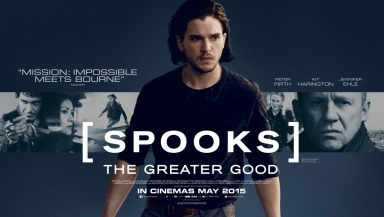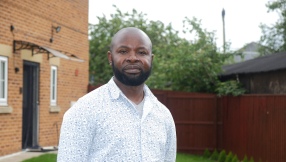
When is it ok to do terrible things? The answer, according to MI5's Harry Pearce, is when you're preventing something even worse from happening. That idea – that the end justifies the means – is the central theme explored in this big screen transfer of the BBC's hugely popular Spooks (known as MI5 in the US), in which members of the British intelligence agency fight a national terror threat by getting their own hands very dirty.
It's easily the best and most interesting thing about Spooks: The Greater Good. TV-to-film adaptations usually go one of two ways; either they build on and enhance the source material (like Serenity, which set the characters of sci-fi show Firefly in an even more epic story), or they struggle to shrug off the form, feel and scale of their original medium. The latter problem sadly looms large here, in what feels much more like a Christmas Special of the brilliant TV series than a real film.
You can see that the film-makers have tried hard to make the leap. Spooks: TGG features slightly more ambitious locations, including Heathrow's new-ish Terminal 5 building, and there are greatly improved special effects. There's a slight elevation in the casting budget too – Game of Thrones' Kit Harington plays lead agent Will, Homeland's David Harewood features briefly, and US actress Jennifer Ehle is a high-ranking MI5 commander with a British accent so dodgy it would make Russell Crowe proud.
The trouble is, it's just not nearly dramatic or exciting enough. It's considered poor form to critique other reviewers, but "an edge-of-your-seat thrill ride" (ShortList magazine) this is not. Instead, the tension keeps dissipating as the sorts of all-action sequences we might expect from a US spy movie are replaced by long periods of people standing around in rooms talking. As a result it's not nearly exciting enough to warrant cinematic release, and provides further evidence that the purely British film industry (so discounting James Bond etc) struggles to make thrilling action films.
The film does retain the TV show's brutal edge (where, Game of Thrones-style, key characters were killed off at will), and manages to create a really interesting bad guy in Adem Qasim (Elyes Gabel), a terrorist who is trying to exact some kind of eye-for-eye revenge for drone strikes in his home country. Qasim is an interesting inversion of ex-MI5 boss Pierce, attempting to make the lives of the faceless women and children killed by British military action count for something, and rejecting the idea that their deaths are somehow justifiable by any 'greater good' achieved.
Despite the film's flaws, that central idea is at least properly explored. Morally-questionable main character Pierce – the one person to make it through all 10 seasons of Spooks alive – offers a worryingly compelling defence of consequentialism (the 'greater good' philosophy). And when Harington utters the best line in the movie: '[in MI5] you can either do good, or do well, and sooner or later they make you choose' there are plenty of wider applications than an imagined version of an intelligence agency. One man believes that every individual matters, the other can only see the bigger picture, and the debate between the two is perhaps the key thing that stays with the viewer afterwards.
It's just a shame that an interesting idea can't quite paper over all the other cracks. The film drops the ball in too many vital areas like script, acting, and drama, and as such Spooks: The Greater Good is likely to disappoint all but the most hardened fans. Perhaps it's a missed opportunity that could have been greatly improved by a bigger budget and a bit more care, but perhaps Spooks should have simply remained a great TV show. On this evidence, it certainly doesn't make for a great movie.
Martin Saunders is a Contributing Editor for Christian Today and an author, screenwriter and the Deputy CEO of Youthscape. You can follow him on Twitter: @martinsaunders













